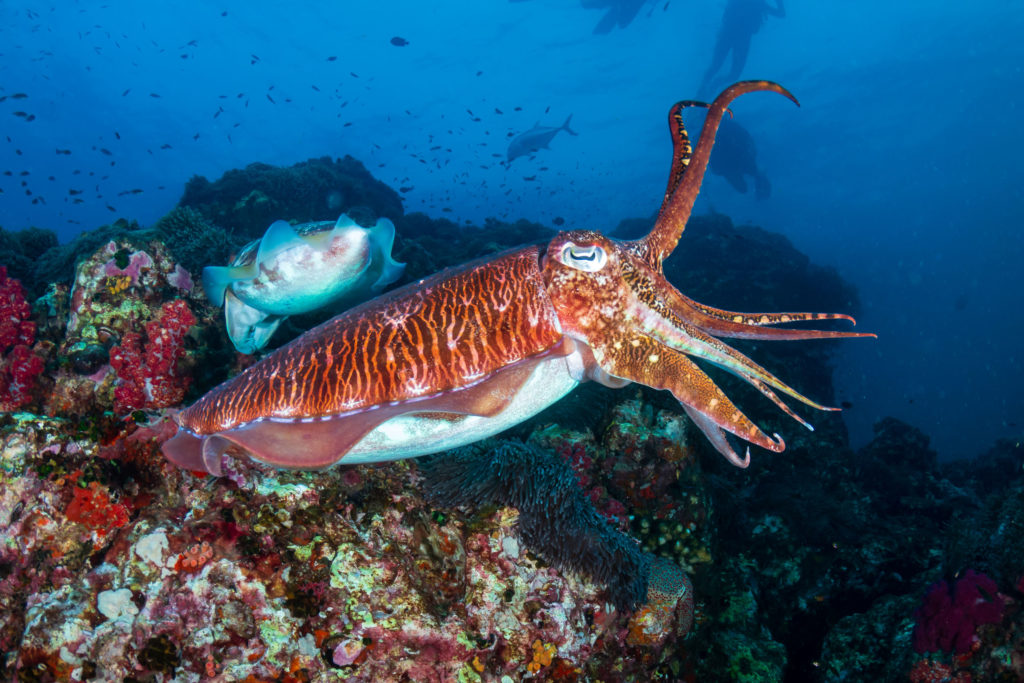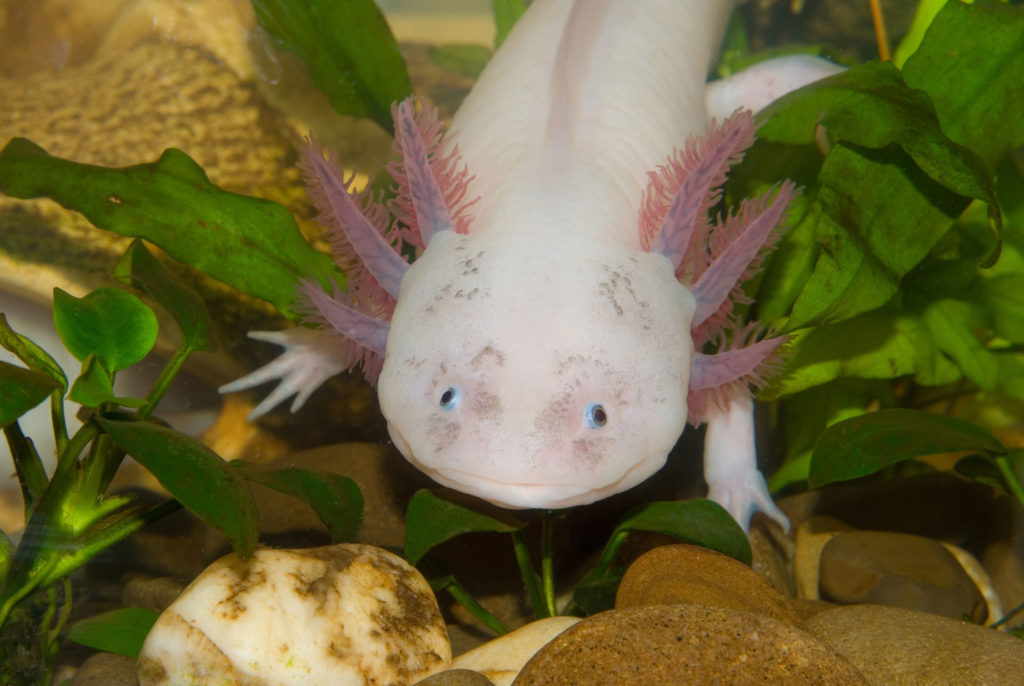
Marine animals are fascinating. Not only are their appearances alien-like (think tentacles, suckers and bioluminescence). But many have also developed unique capabilities unlike anything you see on land.
In fact, most of the biodiversity of the world lies beneath the ocean. According to the World Register of Marine Species, there are more than 400,000 marine species, and it is estimated that 91% of marine species have yet to be identified. Studying marine animals may help us learn more about how we evolved and even lead to new ways to study and treat human diseases. At the forefront of marine biology research is the Marine Biological Lab (MBL), located in Woods Hole, Massachusetts.
The Marine Biological Lab
Founded in 1888, the MBL is a private, nonprofit institution affiliated with the University of Chicago. They are dedicated to exploring fundamental biology, understanding biodiversity and the environment, and informing the human condition through research and education. The lab’s unique location, at the confluence of warm and cold waters, allows access to a highly diverse pool of marine species. (Every day, a boat departs from the lab to collect marine specimens for research purposes.) The lab’s research focuses on biological discovery in Marine organisms, microbes, ecology and climate change.
Besides performing cutting-edge research, another important goal of the MBL is education. In the winter months, there are about 250 people at the MBL, but in the summer months, they expand to about 1,300 people! This is due to the influx of high school students, undergraduates, graduate students, post-docs and faculty attending MBL’s summer training programs. Projects span from doing CRISPR experiments in frogs to generating high-resolution microscopy images of fly embryos. Current MBL director, Dr. Nipam Patel has been a course director for many years. “You will be amazed by what these students can do,” he says.
In addition to the summer courses, the MBL also provides courses throughout the year, including full-term courses associated with the University of Chicago. They plan to continue to expand these courses in the future—with help from Promega. Promega has been providing reagents to support these courses for many years and will continue to provide educational resources that may benefit their trainees.
Why Study Marine Biology?
So why is it so important to study marine biology? “One of our goals is to understand how evolution works, so we need a greater diversity of organisms to do that. There is a whole lot of interesting biology that is not represented by the standard model systems. The standard models are very useful because they have rapid generation times and have a lot of tools, but they are not the ideal animals to answer a lot of the questions in biology,” says Patel. One example of this is regeneration. None of the standard model organisms (mice, fruit flies, nematode worms) regenerate very well. However, many marine organisms are masters at regeneration. For example, the axolotl, a salamander found in Mexico, can regenerate its limbs, spinal cord, heart and other organs.

Patel witnessed the amazing capabilities of marine creatures in his own research. While studying a small crustacean (Parhyale hawaiensis), he found that during the 8-cell embryo stage, one cell is destined to be the germline cell (which produces the sperm and egg). Previously it was thought that if an animal loses its germline cell, there is no way to replace it. But when the germline cell of this crustacean was ablated, the animal remained perfectly fertile! Turns out, it can efficiently regenerate its germline—the first organisms found to have this ability. Needless to say, the discovery would never have been possible in any traditional model organism.
Another example is in cephalopods such as squid, cuttlefish and octopus. An MBL researcher, Dr. Joshua Rosenthal, pioneered research showing that cephalopods primarily use RNA editing to drive their evolution. This is in contrast with most land creatures that rely on DNA mutation. The advantages of RNA editing could be that it’s a faster mechanism to test and try different protein structures and functions. Using cephalopods as models to study RNA editing can potentially lead to new therapeutics for human disease.
The Challenges
Studying marine biology is rewarding, but also challenging. One of the major challenges is the housing and long-term cultivation of marine species. Luckily, MBL has all the necessary resources to keep up with animal husbandry demands. They maintain a 3,200 sq ft marine facility with specially developed tanks and equipment along with expert technical personnel.
Another challenge is the shortage of genetic tools. When working with more popular model organisms, such as mice or flies, there is an abundance of resources to choose from. Thousands of transgenic lines, constructs, antibodies, a library of genome data—all readily available. It’s easy to genetically manipulate these organisms when there are tools available. The same cannot be said of cephalopods or crustaceans. The lack of biological tools is a significant roadblock for researchers trying to understand marine biology. To accelerate research in this area, the MBL is working with Promega to develop tools, such as HaloTag® markers, designed specifically for genetic tracking in marine animals. Despite the challenges ahead, the MBL is hopeful for the future of marine biology research. By developing necessary genetic tools, they hope to establish certain marine species as model organisms, which would encourage more researchers around the world to study them. “It’s where life began and where most of the diversity still lies. So if you want to be able to sample that diversity, and get answers to biological questions, the ocean is the place to look,” says Patel.
Related Posts
Latest posts by Johanna Lee (see all)
- Microfluidic Organoids Could Revolutionize Breast Cancer Treatment - March 25, 2025
- Bacteria From Insect Guts Could Help Degrade Plastic - January 28, 2025
- A Diabetes Drug, Metformin, Slows Aging in Male Monkeys - December 19, 2024
